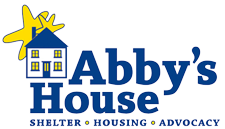Guest Blog written by the Counseling and Assessment Clinic of Worcester, LLC.
Imagine that you are a woman who has been struggling with a horrible disease for over 20 years. As a result of this disease, you find yourself unable to secure employment, stigmatized by your community, and housing insecure, which makes you vulnerable to a wide host of other risks and problems that exacerbate your situation.
This is the plight of many women struggling with addiction in our community and of many of the clients that we serve at the substance addiction recovery program at the Counseling and Assessment Clinic of Worcester, LLC (“CAC”). Many think of addiction and homelessness as male problems, and the statistics back this up, since men are more likely to use illicit drugs than women and to be homeless than women.[1][2] This can lead to a triple stigmatization and marginalization for homeless women who have substance use disorders by virtue of having an addiction and being a woman who has an addiction and being a homeless women who has an addiction. The ironic and sad truth is women tend to develop addictions faster than men.[3] Frequently those with a substance use disorder, both men and women, are facing other mental health diagnoses as well, known as co-occurring disorders, that present unique barriers to healthy outcomes, and women are more likely to have such co-occurring disorders due to traumatic past experiences (e.g. post-traumatic stress disorder).[4] Women who have previously faced or are currently facing domestic abuse, sex trafficking, sexual abuse, and violence, are more likely to be homeless, and these risk factors, in turn, increase their likelihood of developing drug addictions, creating a vicious cycle.[5]
The men and women we serve at the substance addiction recovery program at CAC are in various stages of recovery and are facing all types of addictions, not just opioid addiction – although that has gotten a lot of public attention lately, including addiction to alcohol and to other illicit drugs. They represent diverse backgrounds, ages, and ethnicities. Some are parents, and some are not, but they share one thing in common: they walk through the doors of our program seeking help with turning their lives around by claiming victory over their addiction. For those clients, CAC provides a beacon of hope and we take our commitment to the wellbeing and success of our clients seriously. Community partners like Abby’s House strengthen our ability to do this important and lifesaving work.
Recovery is often a complicated process of starts and stops. It may take any given person many attempts before they enter into long-term recovery, and due to the increasingly dangerous supply of illicit drugs, some are never afforded the opportunity due to overdose deaths. Unfortunately, Massachusetts is one of the ten states with the most opioid deaths in recent years, with 1,913 opioid deaths in 2017 alone.[6] Those who are homeless are far more likely than the general public to use substances and to have a substance use disorder.[7] Some studies indicate that homelessness, and the struggles associated with it, in and of itself, can promote relapse and drug abuse, which can result in addiction.[8]
Our structured small, group-based program focuses on client centered care, education, and recovery support within the community. Our clients report that the CAC program has helped to guide them through the recovery process by providing a safe and structured environment that teaches them self- accountability and empowers them to take their recovery seriously.
When Dr. Jennifer Hylton founded CAC in 2007, it was with the aim to provide exceptional care to all of the clients who walk through our doors, including those with substance use disorders. Abby’s House continues to be a partner for us in this work.
For CAC, having a good neighbor like Abby’s House allows us to assist our most vulnerable clients in gaining access to stable housing that allows them to have dignity and safety, as they progress in the complex journey of long-term recovery. The stability that safe housing, like that which Abby’s House provides, is instrumental to the lifetime success of our clients, particularly homeless women, who are more vulnerable to assault, and other risks than their male counterparts.[9] Abby’s House helps to break the cycles of homelessness and addiction and saves lives.
In addition to our substance addiction recovery services, CAC offers a wide range of behavioral health services including CBHI services, medication management, and adult services, like outpatient therapy and community support.
Our motto, healing individuals, strengthening families remains at the heart of all that we do.
References:
[1] https://www.drugabuse.gov/publications/research-reports/substance-use-in-women/sex-gender-differences-in-substance-use
[2] https://www.forbes.com/sites/eriksherman/2018/12/29/homelessness-has-racial-gender-and-age-disparities/#bece8d43c36e
[3] https://www.dualdiagnosis.org/referring-professionals-guide/gender/
[4] https://www.dualdiagnosis.org/referring-professionals-guide/gender/
[5] https://www.addictioncenter.com/addiction/homelessness/
[6] https://www.drugabuse.gov/opioid-summaries-by-state/massachusetts-opioid-summary
[7] https://www.nationalhomeless.org/factsheets/addiction.pdf
[8] https://www.addictioncenter.com/addiction/homelessness/
[9] https://www.addictioncenter.com/addiction/homelessness/
